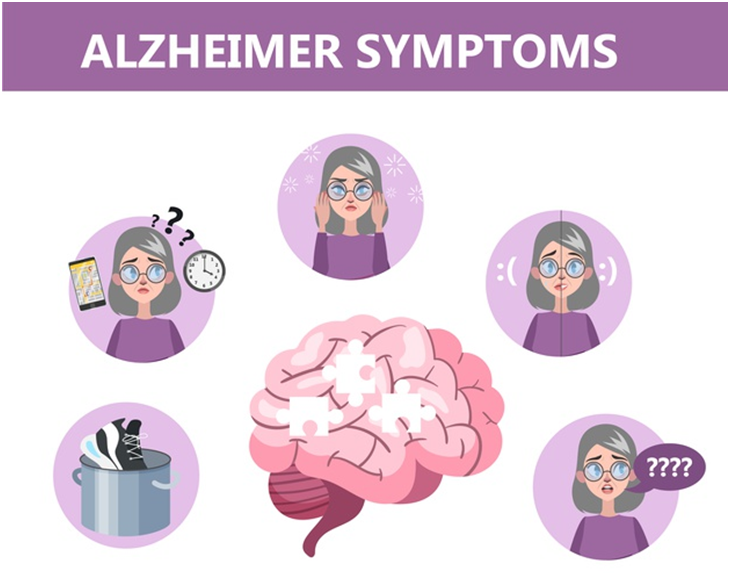– by Pirunrat Nathchayanonth (Yori), Client Coordinator

This topic touches me personally because my mom has Alzheimer’s disease and it started as an early on-set, she was only 53 when she was officially diagnosed.
It was quite a scary experience for our family and it definitely was very emotional experience for me, personally as my mom is my everything. She’s my best friend, my mentor, my rock. She’s the strongest and most resilient person I know. She worked hard and set an excellent example for me so it was very hard for me to see her fading like that. It was even harder when she doesn’t recognize me anymore. But in order to honor her and many beautiful souls living through this experience worldwide, I this article hoping to share more common understanding of the condition and share how we can prevent it or deal with it if already diagnosed.
Let’s have a closer look at the data
Someone in the world develops dementia every 3 seconds. There are over 50 million people worldwide living with dementia in 2020. This number will almost double every 20 years, reaching 82 million in 2030 and 152 million in 2050. Much of the increase will be in developing countries. Already 60% of people with dementia live in low and middle income countries, but by 2050 this will rise to 71%. The fastest growth in the elderly population is taking place in China, India, and their south Asian and western Pacific neighbors.” – Alzheimer’s Disease International
(https://www.alzint.org/about/dementia-facts-figures/dementia-statistics/)

So what is Alzheimer’s?
“Alzheimer’s is the most common cause of dementia, a general term for memory loss and other cognitive abilities serious enough to interfere with daily life. Alzheimer’s disease accounts for 60-80% of dementia cases.” – Alzheimer’s Association (https://www.alz.org)
“Alzheimer’s is an irreversible, progressive brain disorder that slowly destroys memory and thinking skills, and eventually, the ability to carry out simple tasks. While the specific causes of Alzheimer’s disease are not fully known, it is characterized by changes in the brain—including amyloid plaques and neurofibrillary, or tau, tangles—that result in loss of neurons and their connections. These changes affect a person’s ability to remember and think.”- FDA U.S. Food and Drug Administration

(https://www.fda.gov/news-events/press-announcements/fda-grants-accelerated-approval-alzheimers-drug )
I wish this is something like a flu or some kind of infection that can be reversed or cured, but unfortunately it is not. People with Alzheimer’s or Dementia developed their stages differently. From one to another could take as little as weeks or as many as months or years. But it is not something you can reverse, and you have to learn to live with it and manage the condition to the best of your ability.
Main Cause of Alzheimer’s
“Alzheimer’s disease is thought to be caused by the abnormal build-up of proteins in and around brain cells. One of the proteins involved is called amyloid, deposits of which form plaques around brain cells. The other protein is called tau, deposits of which form tangles within brain cells.Although it’s not known exactly what causes this process to begin, scientists now know that it begins many years before symptoms appear.” – NSH UK (https://www.nhs.uk/conditions/alzheimers-disease/causes/)

“There are also some other risk factors that could also increase your chance to having it such as age, family history, environment or even existing untreated illness. According to my mom’s neurologist, this could be genetic but we couldn’t know for sure because both her parents passed at a young age. I also believe it was something to do with her busy schedule while working, she barely had a day off, let alone a proper vacation. That combined with a fact that she was very introverted and reserved, she could have had untreated depression that we were not aware of.
But if it is something that took years to show, how can you tell if your loved ones are starting to experience it? If you are in doubt, lets’ look out for these 6 early signs.
- Memory loss that disrupts daily life – this could be something very simple and small to something really big. Sure we all forget a thing or two every now and then, but people with Alzheimer’s they forget things that they normally do routinely. This doesn’t only affect their life but could also be yours. My mom used to call me every 5 minutes after we hung up, to repeat the same conversation we just had earlier. That is about 12 phone calls in a span of an hour.
- Challenges in planning or solving problems – this can be a major struggle. Even deciding what to wear can be very challenging. Before she asked to stop working completely, she double-booked her boss in so many events and she couldn’t understand what went wrong. 2+2 is 4, but for her 2+2 is a jumble of figures – maybe the answer is 8.
- Difficulty completing familiar tasks – again, this can be any thing from small to big ones. Like I mentioned before they will forget things that they used to do on autopilot. My mom computer’s skill was on expert level, but when she was diagnosed she couldn’t even turn it on or shut it down. Even after I wrote down clear instructions, she couldn’t understand nor follow.
- Confusion with time or place – one minute they know what they were doing, the next they were completely lost. Unfamiliar places can make them feel very uncomfortable or even frighten them. As time goes by, a calendar will not mean anything to them as they won’t be able to understand it.
- Trouble understanding visual images and spatial relationships – they could find it’s difficult to read or understand certain colors like traffic signs.
- New problems with words in speaking or writing – you might be having a fruitful conversation with them and the next thing you know, they stopped in their track and couldn’t carry on. In the movie “Still Alice”, Alice (Julianne Moore) said “I can see the word hanging in front of me but I can’t reach them.” This is probably the best way to describe it.
Can it be prevented?

“As the exact cause of Alzheimer’s disease is still unknown, there’s no certain way to prevent the condition.” – NSH UK (https://www.nhs.uk/conditions/alzheimers-disease/causes/)
With all being said, I would like to encourage you all to have neurology check-up annually. It is always better to detect it early and figure out the right course of action for yourself or your loved ones. Although, the treatment or the cure is not there but we can always plan ahead of how life after prognosis can be. If you don’t know where to start, contact us and we will guide you.